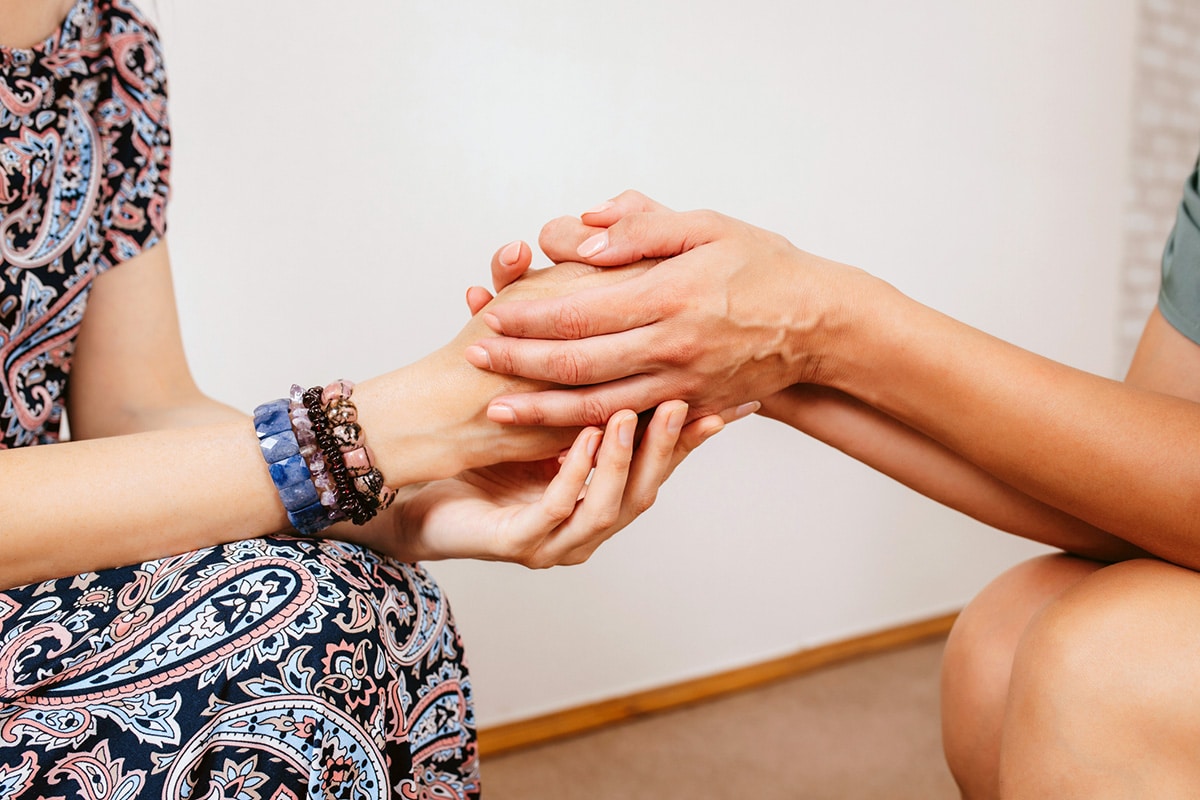 Almost half the people I’ve met in my life, whether as a therapist, family, or friend, have great difficulty asking for help. You might be similar to them when it comes to seeking help, or you may be good at asking for help when you need it. Still, I would venture that there are certain areas in your life where it’s harder for you to recognize that you need help and ask for it. Fear of rejection, distrust, a false self-image of self-sufficiency, and inadequacy are some reasons we shy away from asking for help.
Almost half the people I’ve met in my life, whether as a therapist, family, or friend, have great difficulty asking for help. You might be similar to them when it comes to seeking help, or you may be good at asking for help when you need it. Still, I would venture that there are certain areas in your life where it’s harder for you to recognize that you need help and ask for it. Fear of rejection, distrust, a false self-image of self-sufficiency, and inadequacy are some reasons we shy away from asking for help.
If you were to look at yourself, where would you place your ability to see that you need help? And how would you respond to that need for support? Hopefully, with gentleness and an ask from your trusted people.
When we are able to see that by asking for help, we open up avenues for others to love and care for us — in ways that matter to them and make them feel good. One of the greatest ways we can live our lives — with purpose and heart — is to be on either end of giving or receiving help in times of need.
In fact, being able to help someone in deep need and feeling good about being a ‘giver’ often blurs the concept of a giver and a receiver. Who is who, really? Both become very close to being one, and they’re both a central core of being alive and living to our truest potential.
Why is it so important to ask for help?
If you choose not to ask for help when you need it, especially when you have people around you who can help, you are intentionally perhaps unwittingly withdrawing inside. It’s like putting yourself in solitary confinement when you have a chance to share an intimate experience with another. Not asking for help is one of the biggest sources of reducing and eliminating intimacy. It ensures nothing but isolation and little gratitude and closes the doors to growth. It’s also a common defense against developing a more profound love, which hurts both you and the person you don’t reach out to.
This isn’t something that should guilt you into asking for help. But take a moment to reflect. Learning how to ask for help gracefully inspires the potential for more intimate love and connection.
Moving from old wounds to create patterns of growth
More often than not, our inability to ask for help stems from wounds in our younger years.
Seeing how the patterns from our upbringing can last until we die can help us become aware of them. It requires us to recognize that this is not who we are, but it’s a pattern that’s keeping us frozen — until we can thaw out by finding our courage.
It’s not a moral standard that you should reach out when you need help. Instead, it is a sign of wisdom, self-compassion, and trust, which are hallmarks of maturity. It is a feature of a life oriented toward seeking out the answer to “How can we be closer?”
The unconscious can be a strange deceiver. It can make us feel natural to be distant and dangerous to be close. The more clearly we can make these connections, the greater the chance that we can break the chains with our own sensibility. Our existing habits of how we behave don’t define who we are unless we die with them. When we find the strength to break the original wounding pattern, we become both the liberator and the liberated. It doesn’t matter if it is a big or small expansion; what matters is that we’re aware, honest, and aspire to be our best selves.
What happens when we choose not to ask for help?
There are many couples that have stopped being intimate for decades. This erosion of intimacy is rooted in the lack of finding the courage to ask for what they need or want. It may be feelings of inadequacy because one of the persons can’t function the way they think they should be able to. They don’t want to expose this and perhaps ask for a different way of being touched, kissed, held, or sensually connected.
There are many individuals that have gone through their whole life without asking for help. Not even when they felt really sick, alone, depressed, anxious, etc. Of course, for this person, it might be seen as being self-sufficient, or it could be an aversion to being seen or to see oneself as needy or weak.
We’ve all been this person in our lives. If you can think of similar instances, can you maybe ask yourself this one poignant question: When you feel like you want someone close to you to treat you better (and they have the capacity to do that) in a helpful way, would it make more sense to ask for help or withdraw?
Few have chosen to withdraw, but that doesn’t mean that they necessarily went in the right direction by asking for the support they need.
The power of the subconscious is quite astounding — much more than virtually any of us realize. Our distaste or inability to ask for support doesn’t have to make sense at all.
At times, I also can feel parts of me that have to double-check when I ask for help as feelings creep in that say, “Are you being needy?” I smile when I’m aware of it and hope I catch myself most of the time. My father and mother never modeled asking for help, which I am confident made me and my subconscious a bit unsure. If you think it doesn’t apply to you, you’re either very rare or unaware. When in doubt and with someone with the capacity to help, it’s a good thing to root for finding the courage and humility to ask.
The key: asking for help gracefully
Not asking for help is one of the reasons that stops all kinds of relationships in the political world, business, sports, and causes rifts between nations etc. The potential benefit of each of us working this out is almost unimaginable as it seems so easy for many of us, but it is a culprit that comes with a great price.
Of course, there are some that ask for help every single time — more than they need or more than their loved one has the capacity for. This is a form of dependency that can be equally disturbing. This requires communication between both parties involved. It is a worthwhile question to ask those that are close to you. “Do you feel like I ask for too little or too much if you could change me to be the way you most wanted?” This takes a bit of humility and courage, yet it is a source of deepening love and trust.
It is quite vital that we each do a self-assessment of where we fall on the continuum with the relationships that matter. We need to contemplate where the optimal place of asking would be most natural and complete. Let yourself see relationships where you might be the one giving or the one receiving — or perhaps you don’t know which one you are. This is a growth step waiting to happen, and when done sensitively, there is virtually nothing to lose and a lot to gain for everyone involved.

